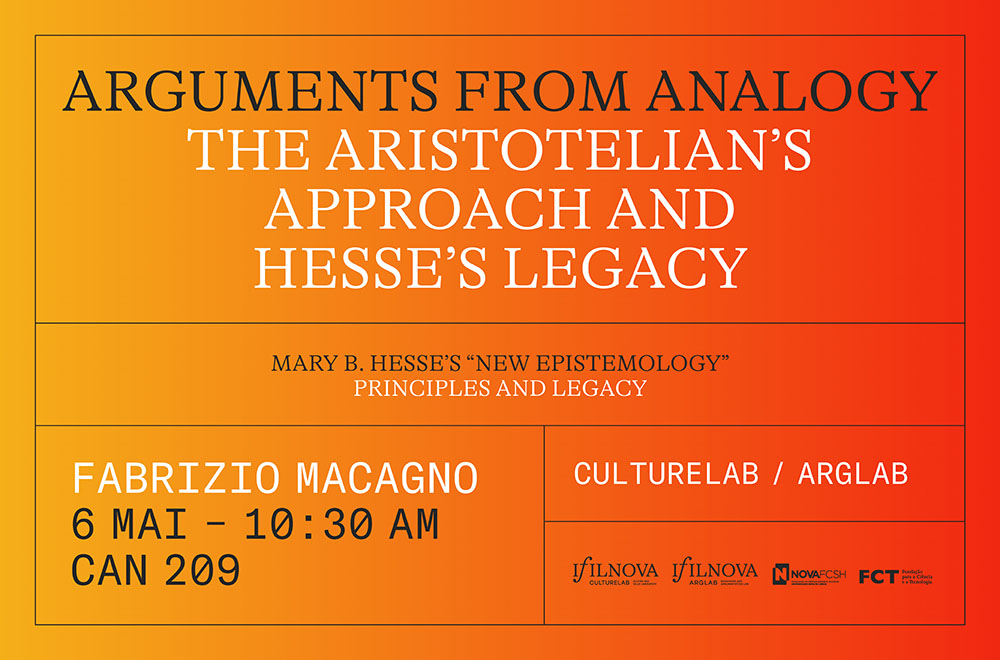Arguments from analogy: the Aristotelian’s approach and Hesse’s legacy

Argument from analogy is a fundamental type of explicit reasoning, whose uses and applications are deeply investigated in argumentation theory, law, education, and artificial intelligence. Its structure is commonly analyzed as a combination of an inductive and a deductive process – leading from the observation of some common features to a generalization, from which a particular conclusion is drawn. The claim that this presentation intends to defend is that analogical arguments can be analyzed as meta-arguments, or rather as the expression of different types of argument. In this perspective, analogy is regarded as a strategy for supporting a conclusion through different types of argumentative (inferential) relations.
This approach to analogy is grounded on Aristotle’s treatment of the topics from analogy and likeliness, and Hesse’s interpretation thereof (Hesse, 1965, 1966, 1988). In the Aristotelian perspective, analogy is used for identifying a characteristic common to various entities different in genus – either for classifying them or discovering a relationship between their properties. Analogy is characterized by two steps. The first one is an abstraction of a generic characteristic (called analogical genus) from the Analogue and the Primary Subject, which is relevant for the attribution of the predicate thereto. The transfer of the predicate from the analogue to the analogical genus and from the genus to the primary subject is guaranteed by different types of maxims (or inference rules), such as arguments from classification, consequences or rules, cause to effect, or from practical reasoning.
To register for the online session, please use this form.

